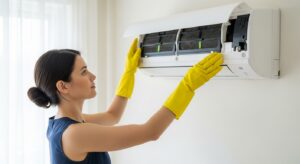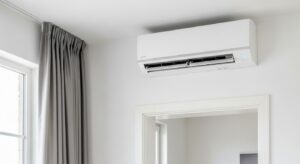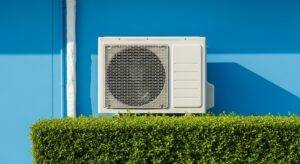As Australians, we rely heavily on our air conditioners to keep cool in the sweltering summer months. However, like any piece of machinery, air conditioning units require regular maintenance to run efficiently. After your air conditioning installation, neglecting maintenance can lead to costly repairs or even the premature failure of your system. In this article, we’ll discuss five clear signs your air conditioner needs immediate maintenance, and how addressing these issues can keep your home comfortable and your energy bills low.
1. Poor Airflow
One of the most common signs that your air conditioner needs attention is poor airflow. If you notice that the air coming from the vents is weaker than usual or if it seems like your home isn’t cooling down as effectively, there’s likely an issue with your system.
Causes of Poor Airflow:
- Clogged Filters: Dust, dirt, and other particles can build up in your air filters over time, restricting the airflow.
- Blocked Ductwork: In some cases, debris or even pests can block your ducts, making it difficult for cool air to circulate.
- Faulty Blower: The blower fan is responsible for moving air throughout your home, and a malfunction here can lead to reduced airflow.
Why It Matters:
When airflow is compromised, your air conditioner has to work harder to cool your home. This not only makes the system less efficient but also increases your energy bills. Ignoring the issue could eventually lead to overheating and compressor failure, which is one of the most expensive components to replace.
What to Do:
Clean or replace air filters regularly to ensure optimal airflow. If you suspect a larger issue, such as blocked ducts or a failing blower, it’s best to call a professional technician to inspect and repair the system before it worsens.
2. Strange Noises
Air conditioners should operate quietly, with only a slight hum indicating that the unit is running. If you begin to hear unusual sounds like banging, squealing, or grinding, this is a strong indicator that something is wrong.
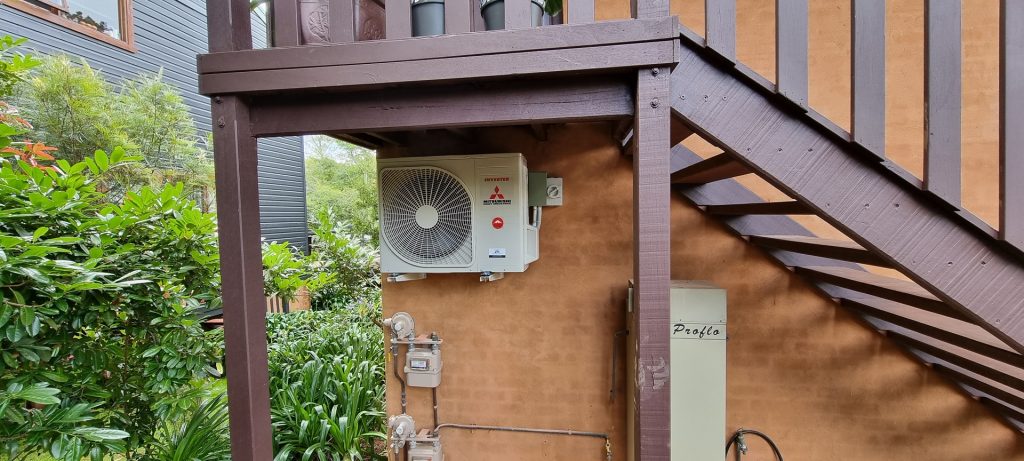
Common Noises and Their Causes:
- Banging: This could be due to loose or broken parts within the compressor.
- Squealing: A squealing sound often signals a worn-out belt or motor bearings.
- Grinding: Grinding noises could indicate issues with the motor or other mechanical components.
Why It Matters:
Strange noises are typically a sign of mechanical issues that, if left unaddressed, can lead to a complete system breakdown. For example, loose parts can damage other components, leading to more extensive and expensive repairs.
What to Do:
Turn off the unit immediately and contact a technician to avoid further damage. A professional can tighten loose parts, lubricate moving components, or replace worn-out parts to restore your system to optimal performance.
3. Warm Air or Reduced Cooling Power
If your air conditioner is blowing warm air or if it’s struggling to keep your home cool, this is a clear sign that something is wrong. There are several potential causes for reduced cooling power, and all of them require prompt attention.
Common Causes:
- Refrigerant Leaks: Low refrigerant levels due to a leak can severely impact your AC’s cooling ability.
- Compressor Issues: The compressor is responsible for cooling the air, and if it’s not working properly, the air won’t be cooled before it’s circulated.
- Thermostat Problems: A malfunctioning thermostat may not be able to properly communicate with the AC unit, leading to improper cooling.
Why It Matters:
Warm air coming from your air conditioner means your system is working inefficiently, using more energy than necessary while failing to cool your home. This not only drives up energy costs but also puts unnecessary strain on your system.
What to Do:
If you notice warm air, have a professional inspect the unit to check for refrigerant leaks, compressor functionality, and thermostat settings. Repairing these issues early can save you from a complete system failure.
4. Foul Odours
Your air conditioner should never emit unpleasant smells. If you notice a musty odour or a burning smell, it’s a clear indication that something is wrong.
Common Odours and Their Causes:
- Musty Smells: These often indicate mould or mildew growth in the ducts or the AC unit itself, which can happen in humid environments like Australia’s coastal regions.
- Burning Smells: This can be a sign of electrical issues, such as wiring problems or overheating components.
Why It Matters:
Musty smells from mould or mildew can affect the air quality in your home, leading to health issues such as respiratory problems or allergies. Burning smells are even more concerning, as they can indicate a potential fire hazard if the electrical issue isn’t resolved promptly.
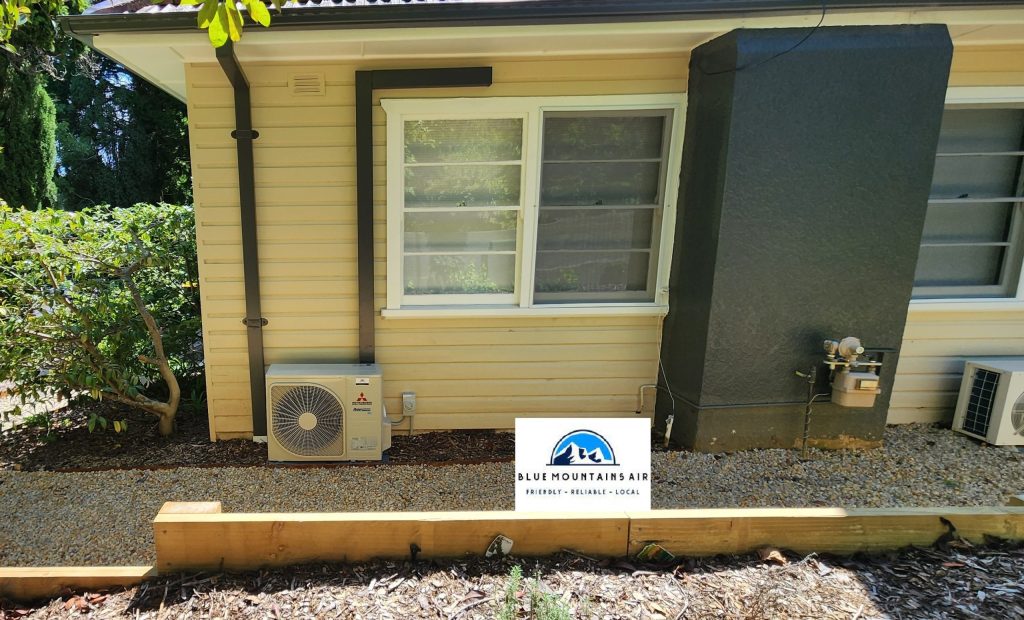
What to Do:
Clean your air conditioner regularly to prevent mould growth, and if you notice any burning smells, switch off the system immediately and call a technician to inspect the wiring and other electrical components.
5. Frequent Cycling On and Off
Air conditioners go through regular cycles, but if your unit is cycling on and off more frequently than usual, it could signal an underlying problem. Known as short cycling, this behaviour can significantly reduce the efficiency of your system.
Causes of Frequent Cycling:
- Thermostat Issues: If the thermostat isn’t properly calibrated, it can cause the unit to turn on and off too quickly.
- Refrigerant Problems: Low refrigerant levels can also lead to short cycling.
- Dirty Filters: Blocked or dirty filters can prevent proper airflow, leading to erratic cycling.
Why It Matters:
Frequent cycling places unnecessary stress on your system, leading to wear and tear on vital components. It also consumes more energy, as air conditioners use more power when they start up than when they’re running continuously.
What to Do:
Check and clean your filters regularly, and have a technician inspect your system for refrigerant levels and thermostat calibration. Addressing short cycling early can prevent more severe damage to your system down the road.
Preventive Maintenance Tips
To avoid these issues altogether, regular maintenance is key. Here are a few simple steps you can take:
- Annual Professional Servicing: Schedule a professional check-up at least once a year, preferably before the summer season kicks in. A technician can inspect the entire system, clean components, and address potential issues before they become major problems.
- DIY Maintenance: Replace filters every 1–3 months, clean the area around your outdoor unit, and inspect visible components for any signs of wear or damage.
- When to Replace the Unit: If your air conditioner is over 10–15 years old and you’re experiencing frequent issues, it may be time to consider replacing it with a newer, more energy-efficient model.
Related Questions
What is the basic maintenance of an aircon?
Basic aircon maintenance includes cleaning or replacing air filters every 1-3 months, checking for any blockages in the vents, ensuring proper refrigerant levels, and inspecting the outdoor unit for debris. Regular maintenance helps improve efficiency and extend the unit’s lifespan.
How many times AC needs to be serviced?
Air conditioners should be serviced professionally at least once a year, ideally before summer, to ensure they are working efficiently and to catch any potential issues early.
How often should an inverter aircon be cleaned?
Inverter air conditioners should be cleaned every 2-3 months for the filters, with deep cleaning (including coils and fan) once or twice a year.
Conclusion
Your air conditioner is an essential part of staying comfortable during the hot Australian summer. By keeping an eye out for these five signs — poor airflow, strange noises, warm air, foul odours, and frequent cycling — you can catch potential problems early and avoid costly repairs or breakdowns. Regular maintenance and professional servicing will help ensure your system runs smoothly and efficiently for years to come.
If you’ve noticed any of these warning signs, it’s time to contact a qualified technician to assess and repair your system, ensuring your home stays cool and comfortable throughout the summer.


